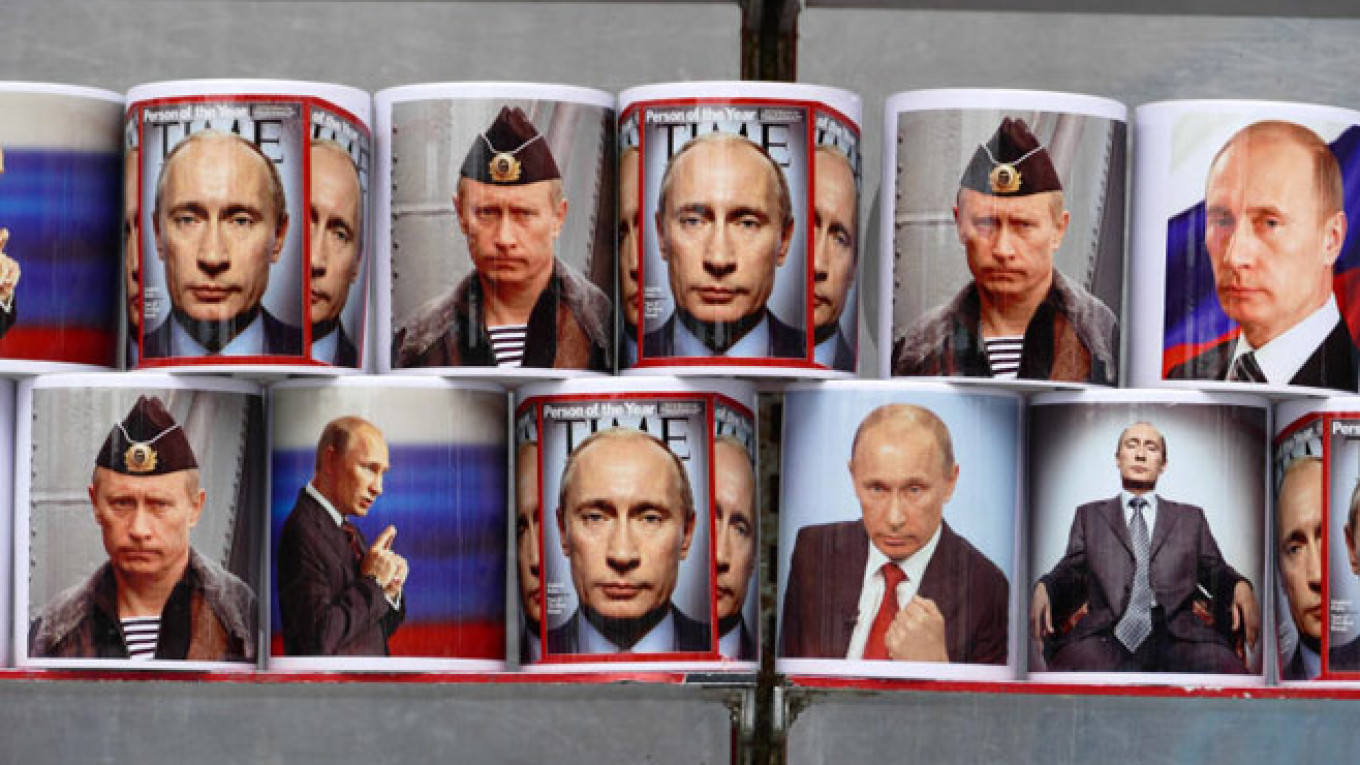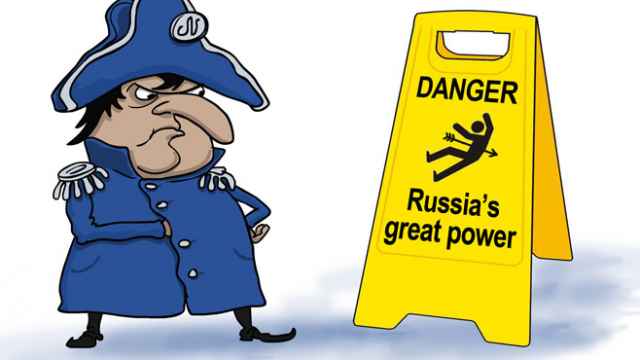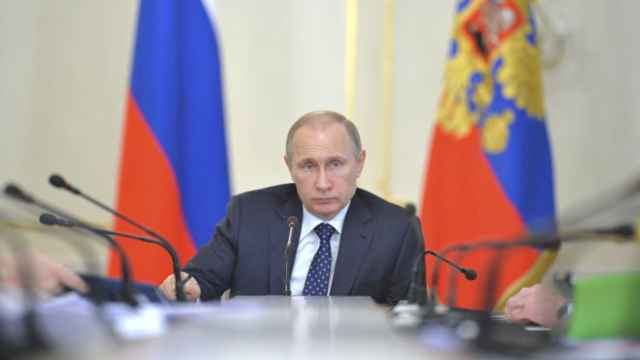If there is one international relations theory that best describes President Vladimir Putin's overall foreign policy approach, it is surely the offensive realist theory articulated by John J. Mearsheimer in his "The Tragedy of Great Power Politics."
Mearsheimer argues that all great powers behave offensively toward one another. Even if their leaders would prefer not to, they will either end up doing so in response to other great powers' offensive actions, or their nation's great power status will suffer as a result of others taking advantage of their misguided attempts to build a better, more peaceful world order.
Whether the leaders of all great powers actually behave like offensive realists or end up doing so despite themselves can be debated. There is no doubt, however, that Putin has been acting like an offensive realist toward the West, the former Soviet republics, and elsewhere.
His interventions in Georgia and Ukraine, support for far-right political parties in Europe, sending Russian military aircraft to fly over numerous countries and increased naval activity all demonstrate Putin's adherence to offensive realism.
This makes it all the more remarkable that there is one important instance in which Putin has not acted as an offensive realist. In the revised version of his book published in 2014, Mearsheimer wrote about how a rising China — pursuing the logic of offensive realism — seeks to dominate Asia, and that America — pursuing the same logic — is trying to prevent it from doing so.
According to Mearsheimer, "China's neighbors are certain to fear its rise and they will do whatever they can to prevent it from achieving regional hegemony. Indeed, there is already substantial evidence that countries like India, Japan, and Russia, as well as smaller powers … are worried about China's ascendancy and are looking for ways to contain it. In the end, they will join an American-led balancing coalition to check China's rise."
While India, Japan, and most smaller Asian powers have indeed all shown that they are worried about an increasingly assertive China, Russia appears to be remarkably unconcerned about it.
One possible explanation is that Putin is so focused on his rivalry with the West that he simply isn't paying attention to China. Putin has frequently expressed fear that Washington is actively seeking to organize a democratic "color revolution" to topple him. By contrast, the authoritarian regimes in Moscow and Beijing are not trying to democratize each other.
But just because the Chinese government is authoritarian does not mean that it cannot behave aggressively toward any of its neighbors, including Russia, if the opportunity arose. Putin is surely aware of this.
Another possibility is that while Putin is aware that China's rise and the response of others to it looms as the most important 21st century geopolitical confrontation, he prefers that Russia stand aside while China's relations deteriorate with the U.S. and its Asian neighbors.
The problem with this strategy is that if other Asian nations ally with the U.S. to contain China while Russia does not, and if China is determined to pursue expansionist aims, then Russia could become the easiest target for Beijing. Further, the more hostile relations between Russia and the West become, the more able China is to impose its will on Russia. Putin is surely aware of this too.
Yet another possibility is that Putin does not want the West or the Russian public to think that Chinese-American rivalry is the most important geopolitical conflict of the 21st century, but instead wants Russian-American rivalry to be regarded as such. If Russian-American rivalry is seen as the predominant geopolitical conflict, then Putin gets attention from Western governments and media and can pose as the champion of the nation to the Russian public.
But if the rise of China is regarded as the predominant geopolitical conflict both by the West and the Russian public, then his aggressive actions either won't get the attention he wants or will appear foolish since they distract from preparing against the common Chinese threat.
Whatever the explanation for Putin's not treating Beijing as a rival, one thing should be clear: while Putin may be an offensive realist vis-à-vis the West, when it comes to China he is neither offensive nor a realist. Mearsheimer's theory would predict either that Moscow will eventually be forced to change course and adopt an offensive realist policy toward China, or Russian interests will suffer as a result of its not doing so.
Mark N. Katz is a professor of government and politics at George Mason University.
A Message from The Moscow Times:
Dear readers,
We are facing unprecedented challenges. Russia's Prosecutor General's Office has designated The Moscow Times as an "undesirable" organization, criminalizing our work and putting our staff at risk of prosecution. This follows our earlier unjust labeling as a "foreign agent."
These actions are direct attempts to silence independent journalism in Russia. The authorities claim our work "discredits the decisions of the Russian leadership." We see things differently: we strive to provide accurate, unbiased reporting on Russia.
We, the journalists of The Moscow Times, refuse to be silenced. But to continue our work, we need your help.
Your support, no matter how small, makes a world of difference. If you can, please support us monthly starting from just $2. It's quick to set up, and every contribution makes a significant impact.
By supporting The Moscow Times, you're defending open, independent journalism in the face of repression. Thank you for standing with us.
Remind me later.






